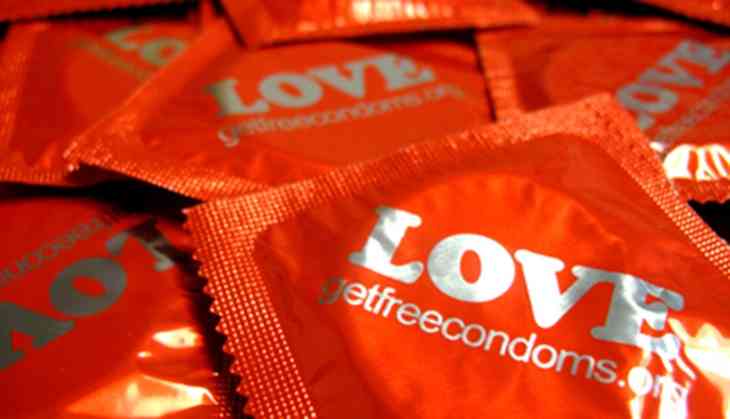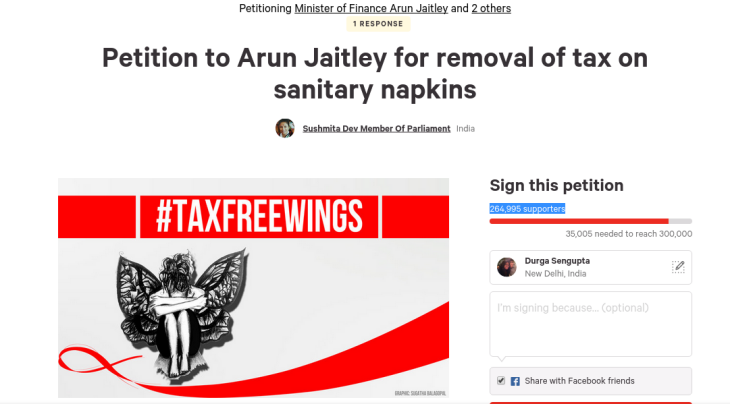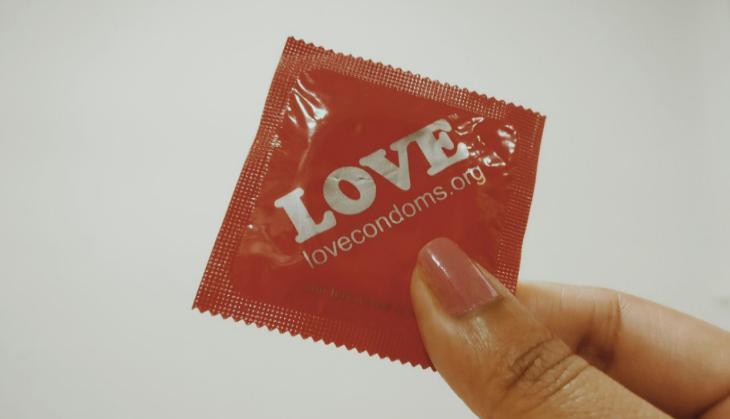
Free-for-all condoms have finally made it to India. But we're still being taxed for sanitary pads.
But first, let's discuss the good news. 'Love Condoms', launched by global charity AIDS Health Care Foundation (AHF) on Wednesday, is a first-of-its-kind initiative. While condoms have been distributed for free to certain sections of the society, such as sex-workers, Men who have sex with men (MSM) and intravenous drug users, India has never had a service where condoms could be accessed for free by everyone.
The condoms can be requested via a toll-free number 1800 102 8102, or via an email tofreecondomstoreahf@gmail.com. The only catch is that you must order in bulk.
“We encourage individuals and organisations to send in a request of minimum one box (144 pieces). Delivery will be made within a week to any major city of India,” AHF India’s programme director, Dr V Sam Prasad, told DNA.
#LahuKaLagaan
While it's great that an international organisation is helping Indians out with sexual health as part of a global initiative, the truth at home is that we're still fighting a battle for tax-free sanitary napkins. #LahuKaLagaan, an irksome hashtag has been trending on social media for a few days now, has tweeple requesting Arun Jaitley to keep menstrual products out of Goods & Services Tax (GST).
The movement isn't irksome in itself, but because it's necessary in 2017 for Indians to demand that half our population shouldn't be taxed for a monthly biological need we have no control over. And irksome because we haven't reached a point where we can discuss free sanitary napkins, because women's needs are, frankly, secondary.
The debate started though, with Congress MP Sushmita Dev's call for 100% tax exemption for the production and distribution of environment-friendly sanitation. In March 2017, Dev started a Change.org petition demanding the same, requesting Jaitley to acknowledge women's needs on International Women's Day.

Dev's petition, which allows for “a minimal tax” on disposable sanitary napkins “to dissuade its use on large scale in order to safeguard the environment”, has 264,995 supporters today.
Talking about her petition, Dev said, “It was the right time to start this petition as the GST bill is about to be implemented and they’re deciding the tax slabs, so I am hoping that they will look into my request. And since affordability has a major effect on accessibility, removing the tax will definitely improve the situation.”
Fortunately for us though, the one demographic of India whose voices are heard, and for whom affordability isn't a concern (read: Bollywood) has started to join this conversation.
Gul Panag, showing her support, said, “I’m glad that the larger issue of menstrual health is finally being addressed through this campaign.”
“The government should consider that we have a vast female population, of which a major chunk is facing severe health issues due to the lack of access [to napkins]. It’s crucial that the tax is dropped,” said Vishal Dadlani.
@arunjaitley #LahuKaLagaan maaf karo.Please remove the tax on Sanitary Napkins. With @SheSaysIndia & @kunalvijayakar pic.twitter.com/a8ZeQsmcES
— Cyrus Broacha (@BoredBroacha) April 18, 2017
Bills and billing
Whether our Finance Minister will consider this request, though, is something that is yet to be seen.
As the Chief of Advocacy and Policy at AHF, Terry Ford, told AFP, “We feel very frustrated. We work with governments all over the world but there's nothing like Indian bureaucracy.”
Ford's context was that it took 15 years for the HIV/AIDS (Prevention and Control) Bill to be passed in Parliament. This despite India been the third-worst affected country in the world, with an estimated 2.1 million infected with HIV, as per WHO.
“Government-run anti-retroviral therapy clinics close by noon everyday. How can you expect an HIV person to come in the middle of the day, leaving his/her job to seek therapy. We feel very frustrated. We work with governments all over the world but there’s nothing like Indian bureaucracy,” she added.

A relevant point that Ford made, which applies to both free condoms and pads, is India's lack of basic healthcare.
"India wants to be a global player in the world economy but if you can't even ensure basic healthcare to your people you can't become one," she said.
Love Condoms can only be one part of the solution, as accessibility is still a huge concern. Much like tax-free bio-degradable pads in a country where some women still rely on sand during their periods.
First published: 27 April 2017, 19:50 IST

